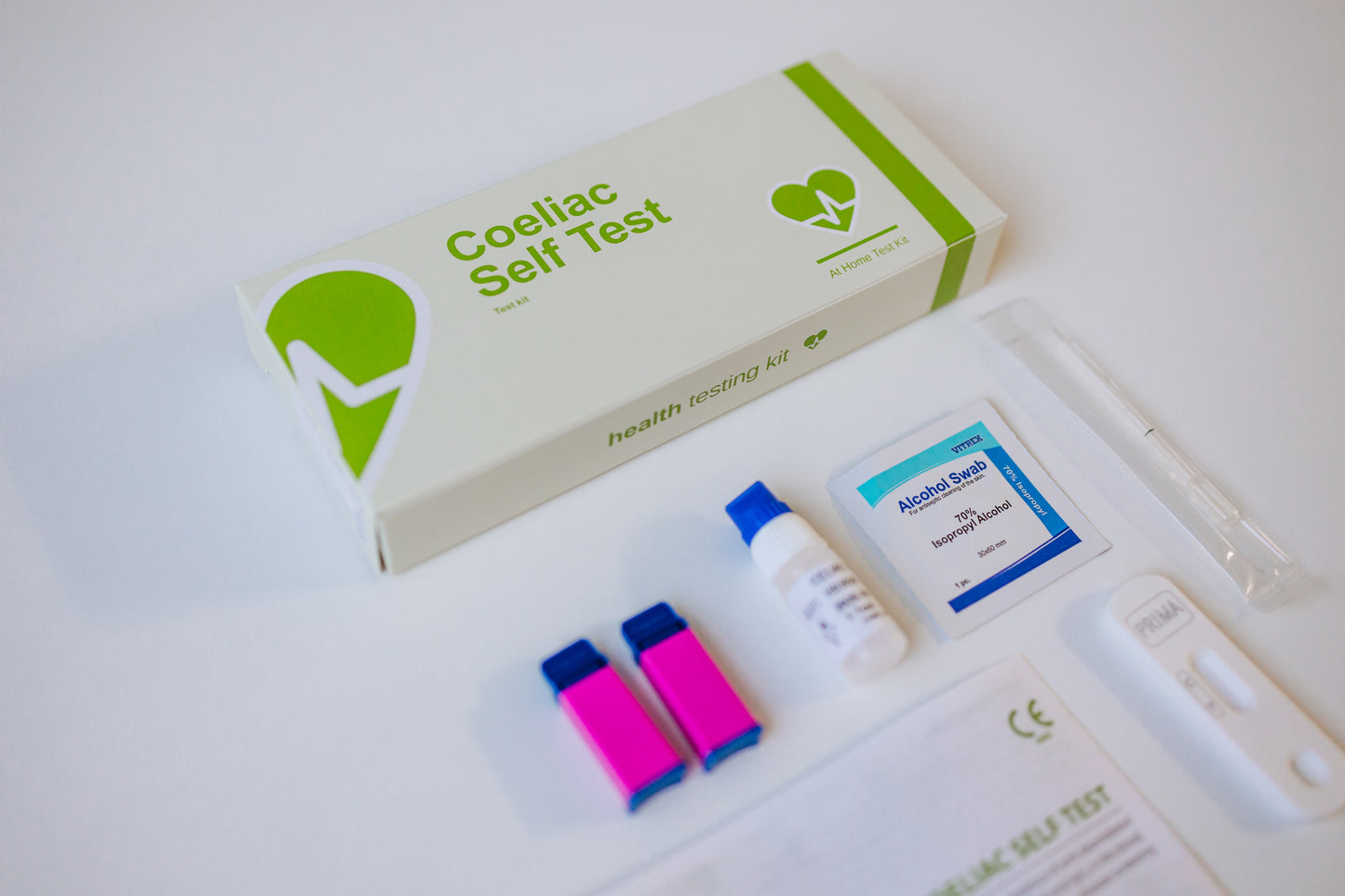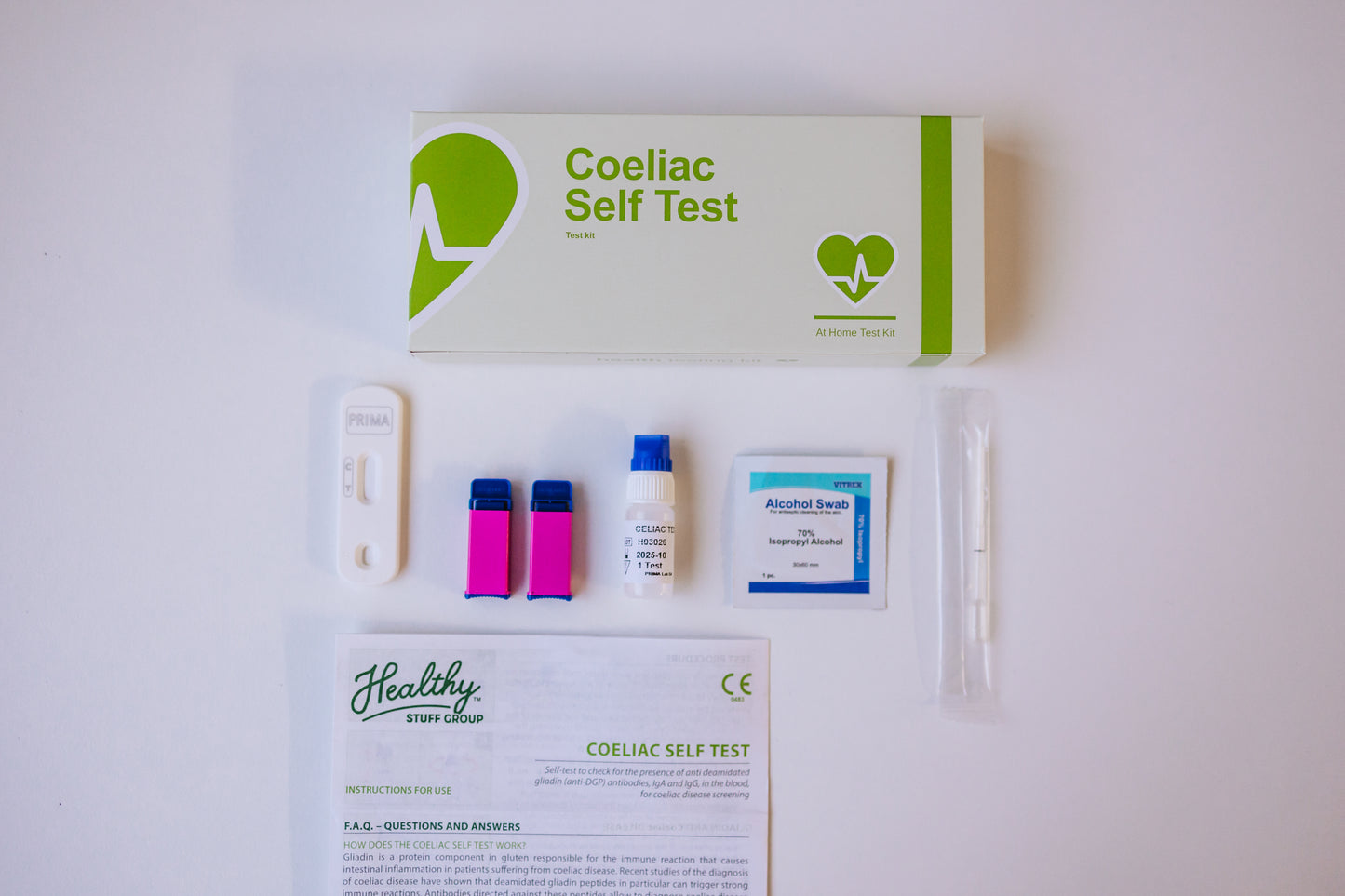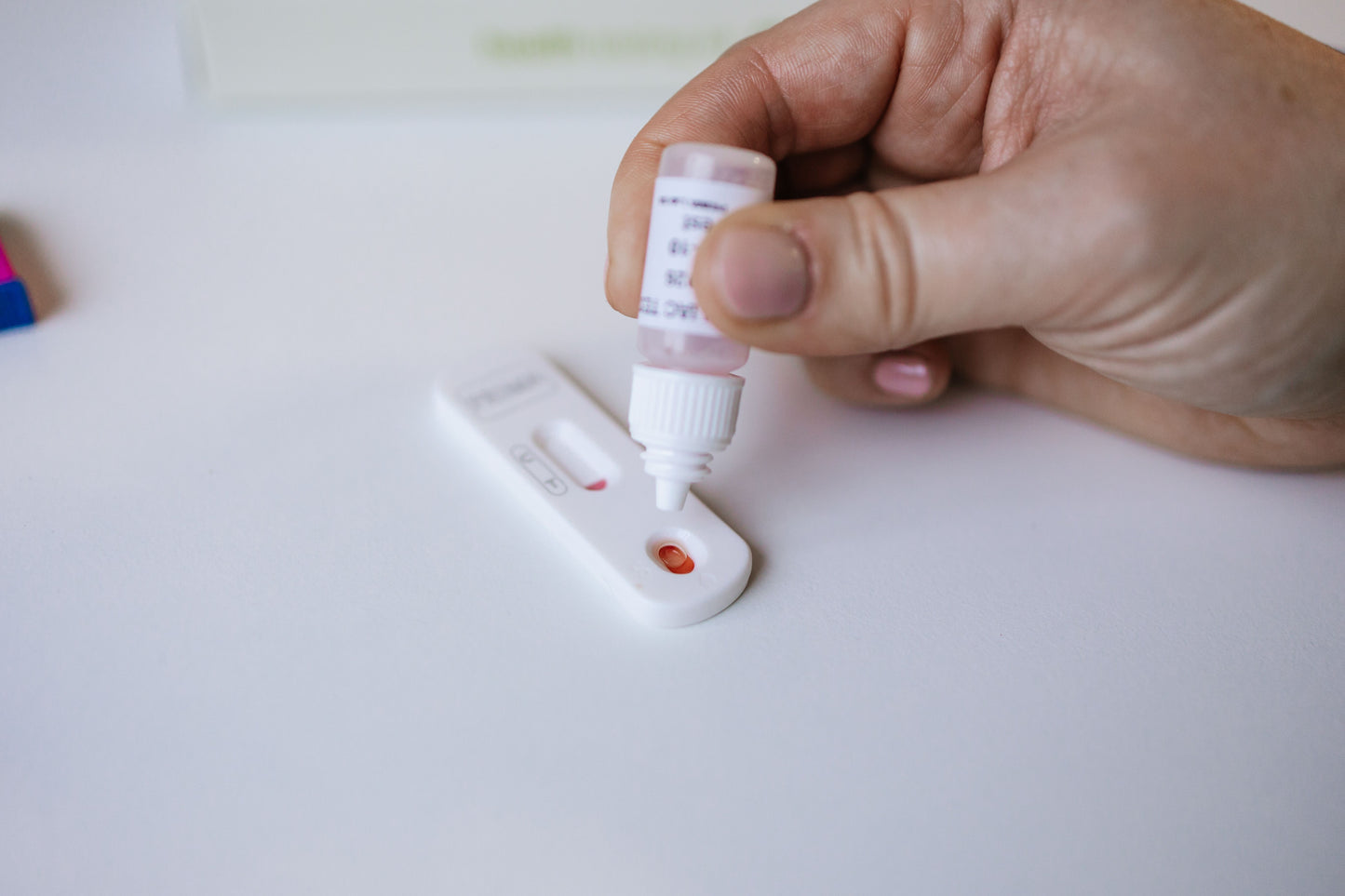Hermetically sealed aluminium pouch containing:
1 x Celiac test cassette
1 x Desiccant bag transparent plastic bag containing a pipette for collecting blood
1 x Alcoholic cleansing gauze
1 x Instructions for use leaflet sterile lancets for self-drawing blood vial with dropper tip containing sufficient CELIAC TEST diluent for 1 test
Material required but not supplied: cotton wool, a device to measure time (i.e. timer, watch).
Do not open the sealed aluminium bag until just before performing the test. Take care to open it as marked.
The desiccant packet must not be used. Dispose of it with household waste without opening it.











